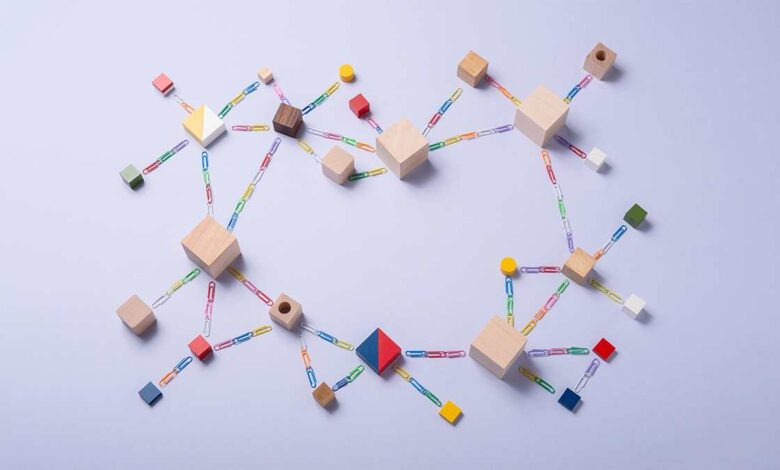Investing in Decentralized Autonomous Organizations (DAOs): The Future of Governance

Decentralized autonomous organizations (DAOs) represent a groundbreaking paradigm shift in governance and organizational structure. Built on blockchain technology and governed by smart contracts, DAOs enable participants to collectively make decisions, manage resources, and govern operations in a decentralized and transparent manner. In this article, we explore the concept of DAOs, their potential applications, and the opportunities they present for investors seeking to participate in the future of governance. Anyone new to trading must consider visiting https://tradermate.software/ to get started with their trading journey.
Understanding Decentralized Autonomous Organizations (DAOs)
At its core, a DAO is a digital entity governed by a set of rules encoded in smart contracts on a blockchain. These rules dictate how the organization operates, how decisions are made, and how resources are allocated. Unlike traditional centralized organizations, DAOs operate without a central authority or hierarchy, relying instead on the collective intelligence and consensus of their participants.
Participants in a DAO typically hold tokens that represent ownership or voting rights within the organization. Through a process of token-based governance, participants can propose and vote on decisions, such as allocating funds for projects, implementing protocol upgrades, or changing organizational rules. The execution of these decisions is automated through smart contracts, ensuring transparency, accountability, and immutability.
Potential Applications of DAOs
The potential applications of DAOs span a wide range of industries and use cases, from decentralized finance (DeFi) and governance tokens to decentralized autonomous corporations and community-driven organizations. Some of the most prominent applications of DAOs include:
Decentralized Finance (DeFi): DAOs play a central role in the DeFi ecosystem, enabling decentralized lending and borrowing, automated market making, and asset management. Platforms like Compound, Aave, and MakerDAO operate as DAOs, allowing users to participate in governance and earn rewards by staking their tokens.
Governance Tokens: Many blockchain projects issue governance tokens that grant holders voting rights over protocol upgrades, fee adjustments, and other governance decisions. These governance tokens operate as DAOs, with token holders collectively governing the direction and development of the project.
Decentralized Autonomous Corporations: DAOs can also be used to create decentralized autonomous corporations (DACs), which are autonomous entities that operate without human intervention. DACs can automate business processes, manage resources, and distribute profits to stakeholders based on predefined rules encoded in smart contracts.
Community-driven Organizations: DAOs empower communities to self-organize and govern shared resources, such as digital art collections, social media platforms, and collaborative projects. Platforms like DAOstack and Aragon provide tools for creating and managing community-driven organizations, enabling participants to collaborate, coordinate, and govern collectively.
Opportunities for investors
Investing in DAOs presents unique opportunities for investors looking to participate in the future of governance and decentralized finance. Some of the key opportunities include:
Governance Participation: By holding governance tokens or participating in DAOs, investors can directly influence the direction and development of blockchain projects. This gives investors a voice in governance decisions and allows them to shape the future of the projects they support.
Staking and Yield Farming: Many DAOs offer opportunities for investors to earn rewards by staking their tokens or providing liquidity to decentralized exchanges. Through mechanisms like yield farming and liquidity mining, investors can earn passive income and participate in the governance of DeFi protocols.
Investing in DAO Tokens: Some investors may choose to invest directly in DAO tokens, speculating on the future success and adoption of decentralized organizations. As DAOs continue to gain traction and expand into new industries, the value of their tokens may appreciate, providing potential returns for early investors.
Supporting Innovation: Investing in DAOs supports innovation and experimentation in decentralized governance and blockchain technology. By funding DAOs and participating in their ecosystems, investors contribute to the growth and development of the decentralized economy.
Challenges and risks
While investing in DAOs presents compelling opportunities, it is not without challenges and risks. Some of the key challenges and risks include:
Regulatory Uncertainty: Regulatory uncertainty remains a significant barrier to the adoption of DAOs, with regulators grappling with how to classify and regulate decentralized organizations. Investors should be aware of the regulatory landscape and potential risks associated with investing in DAOs.
Smart Contract Risks: Smart contracts are susceptible to bugs, vulnerabilities, and exploits, which can result in financial losses for investors. Due diligence is essential when investing in DAOs, and investors should assess the security and reliability of the underlying smart contracts.
Governance Risks: Governance processes in DAOs can be complex and subject to manipulation, collusion, and governance attacks. Investors should carefully evaluate the governance mechanisms and processes of DAOs before participating in governance decisions.
Market Volatility: The cryptocurrency market is highly volatile, with prices subject to rapid fluctuations and market sentiment. Investors should be prepared for market volatility and consider their risk tolerance before investing in DAOs.
Conclusion
Decentralized autonomous organizations (DAOs) represent a transformative paradigm shift in governance and organizational structure, enabling participants to collectively govern and manage resources in a decentralized and transparent manner. Investing in DAOs presents unique opportunities for investors to participate in the future of governance and decentralized finance, from governance participation and staking to investing in DAO tokens and supporting innovation. However, investing in DAOs also comes with challenges and risks, including regulatory uncertainty, smart contract risks, governance risks, and market volatility. As DAOs continue to evolve and gain traction, investors should carefully evaluate the opportunities and risks associated with investing in decentralized organizations and participate thoughtfully in the decentralized economy of the future.